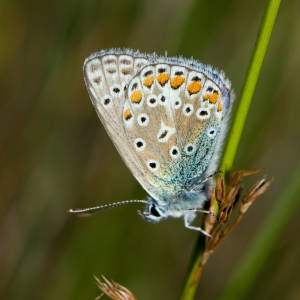A century on
When you've passed your own half century, a hundred years doesn't seem so long a time span. It was a sobering thought when we were with the boys yesterday that, had they been living just a hundred years earlier, they would have been thinking about whether they would join the forces (just the two services then). And their respective wives/girlfriends would have been framing their own attitudes.
The image today needed two visits, including one to Wisley where the poppy display was just about over, but I found some growing in a shady patch. Before that, however, I'd called at the Commonwealth War Cemetery in Pirbright.
The cemetery is an extraordinary place. It's always quiet and the graves are beautifully tended. Unlike most war cemeteries, this one has many different nationalities and faiths. From the two world wars there are graves of Britons, Canadians, Americans, Italians, Poles, Czechs, Germans, Turks, Indians, Australians, New Zealanders, South Africans, Belgians, French and, no doubt, others I've overlooked. Many of them were servicemen who died of their injuries after they'd been treated at some of the military hospitals in the area.
I was talking with a man who'd been a gardener there for 35 years and we were discussing what stories there must have been surrounding these graves. He told me one of a Canadian veteran of D-Day who was visiting the cemetery a few years ago. On the day of the Normandy landings the Canadian had been in a landing craft with his close friend alongside him. The ramp went down and his friend was shot by his side. A wave hit the landing craft and when the Canadian soldier had run up the beach he could see no sign of his friend. In fact he never saw him again. Then, when he went to sign the visitors book more than 60 years later he noticed the last person to sign book before him - it was the friend who he thought had died all those years earlier.
The gardener did not know whether the two men were ever reunited. That's a characteristic of these cemeteries. They cannot tell the full story.
I have mixed feelings about this centenary and all the accompanying events. When I was young, a lot of WWI veterans were still alive and while the dead were remembered every November 11, those who'd survived didn't speak of it much.
Now, as it shifts historically beyond any living generation, there seems to be a fascination in recalling it in vivid detail. That's because we cannot understand the indescribable. We're asked to remember, but we cannot remember that which we have never known. So I look at the graves and the names and remember only that each was an individual, each with their personal stories, all of which ended badly. They're gone now, but if they could see what remained, if they could see the care extended to each of their graves, I wonder what they'd think? I doubt they'd be reciting Rupert Brooke.
A good site for war poetry.
- 10
- 0
- Nikon D4S
- 1/100
- f/11.0
- 50mm
- 200

Comments
Sign in or get an account to comment.


